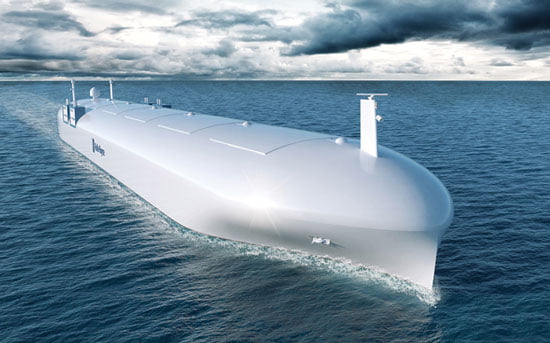
Autonomous cars? Yes! Autonomous trucks? Yes! (Read a related comment in b&g issue 3). Autonomous flying machines? Yes! Autonomous ships? Autonomous tankers, cargo, Ro-Ro or warships? Not yet, but it won’t be long… Rolls-Royce estimates that the technology already exists and the question is not whether there will be autonomous ships, but when. It answers that in the next few years they will be used on ferries and on coastal and/or short cargo routes, and within the next decade they will seamlessly sail ocean routes on the high seas.
Shipping companies, universities, research institutes, insurance firms and government agencies are already working intensively on autonomous navigation. Rolls-Royce itself is participating in a Finnish industrial programme entitled “Advanced Autonomous Waterborne Applications”. The EU has set up the “unmanned navigation through intelligent networks” programme, based in Hamburg, that focuses on the technical, economic and legal viability of a commercial fleet of unmanned vessels. In Norway, the multinational maritime certification and safety company DNV is behind a plan to build unmanned craft for cargo transport along the Norwegian coastline. In China, the state navigation authority and Wuhan University of Technology are collaborating to build autonomous ships for both commercial and military use. Since everyone agrees that the main obstacle is not a lack of technology but the necessary adaptation of the international legal framework and regulations, a consortium of six nations led by Sweden, along with the relevant British agencies, is already dealing with the legal complications that a vessel with not a single person on board may face in international waters.
The argument in favor of autonomous shipping starts – of course! – with the problems arising from the presence of crews on ships. First, according to the insurer Allianz, 72 to 96 percent of maritime accidents are due to human error. Second, the presence of a crew, with all its needs, deprives the vessel of valuable space that could be used for cargo. Decks, cabins, workshops, electricity, sewage and heating facilities could all be removed in an autonomous ship. Third, crews grow weary on long voyages and fatigue overtakes sailors. Moreover, autonomous ships, experts say, will be impregnable to piracy (no one will even be able to stand on them, let alone command them), less energy-intensive, safer in storms and more punctual in their schedules.
Don’t expect your next trip to the Aegean to be on some hi-tech passenger ferry; you’re more likely to spot a robotic destroyer on patrol…
